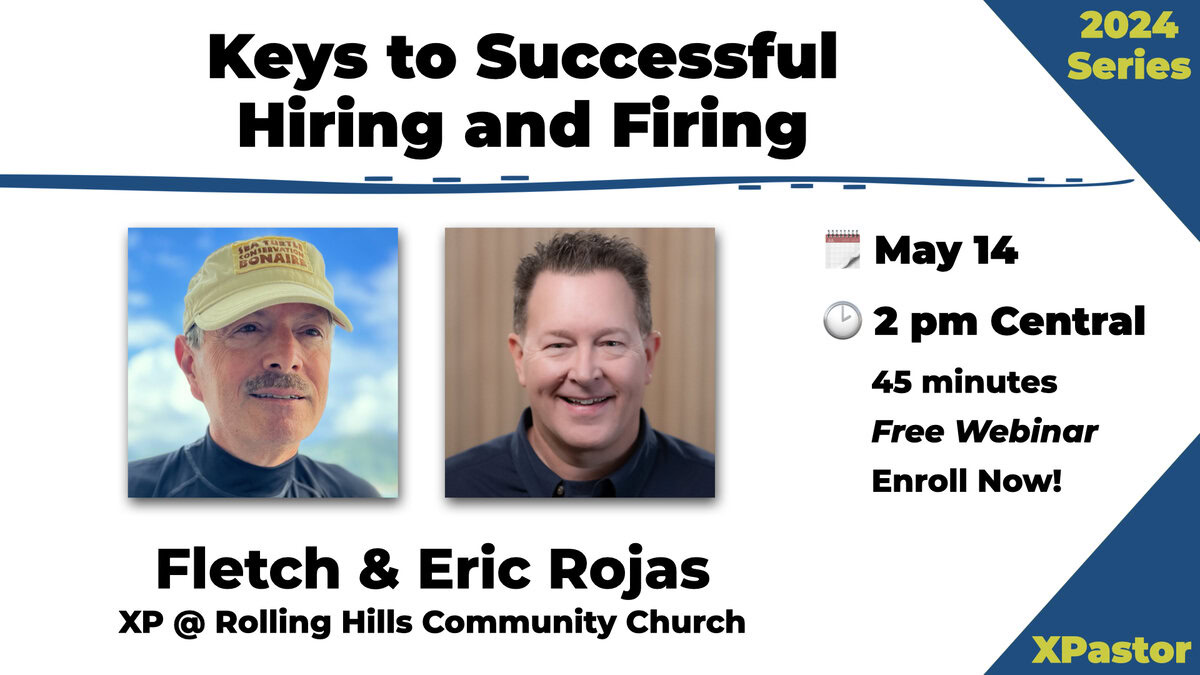Do you like filling out questionnaires? I don’t. The only time I fill them out is when I have no other choice. But what about when it comes to hiring? Is it a good idea to have candidates for your open ministry positions fill out a questionnaire?
Traditional churches often like questionnaires since they get the idea that they can learn a lot about a candidate this way. Let me tell you why I disagree and why questionnaires are less than effective.
Here are five reasons to avoid questionnaires when it comes to the hiring process:
- The questions asked are typically not specific enough for the candidate to understand exactly what you’re looking for.
- Written communication is wonderful for certain tasks, but when it comes to hiring, a questionnaire is not dynamic. It doesn’t allow for the writer to communicate his or her passions as clearly as other forms of communication, such as over the phone, a Skype videoconference, or in person. A questionnaire doesn’t allow you to grasp the depth of the candidate’s knowledge or understanding. Also, it limits or sometimes even eliminates emotion, especially since a questionnaire can’t allow for back and forth interaction.
- The questions you have in mind for a questionnaire function better as dialogue within an interview context. During an interview, the questions can serve both the candidate and your search or leadership team. Both sides can interact and discuss the questions, which allows you to gain more insight than a static questionnaire.
- You’re not hiring a candidate to fill out paperwork. Asking candidates to spend 3-5 hours laboring over a lengthy questionnaire isn’t fair considering, at this point, you’ve given them very little. Consider, too, that the interview process is not just one way—the candidate is also interviewing the church. Yes, you are being interviewed and should actually expect that of a good candidate. It’s only fair to allow some give and take and discussion in the interview process. This also shows that you’re willing to invest in them as the process unfolds.
- In certain instances, a questionnaire will simply turn away a potential candidate—especially in cases where a church is looking for a leader who is relevant with modern church culture. In such circumstances, the candidates you are looking for aren’t used to filling out questionnaires. They probably will find them “old school,” which may also lead them to consider another opportunity.
Because of these reasons, it’s been years since any MinisterSearch clients have used questionnaires. Now, with that said, in no way am I suggesting that the important questions you have in mind for a questionnaire not be asked. Remember, though, that the best place for you to ask most questions is during an interview, not on pages and pages of paper. This allows everyone involved to get an idea of how you and the candidate would work together, communicate, and handle different viewpoints.
One last thing: to begin your process by asking deep, theological or personal questions—before establishing any relationship with the candidate—will communicate something less than desirable. Think of dating, for example. In dating there are lots of questions that need to be asked before a couple gets married, but there are appropriate times and places for such questions. Do your best to make sure that the first date is memorable—in a good way.











